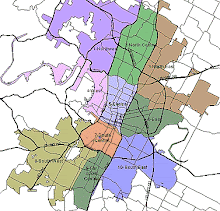It's that time again, time to take the census. Every 10 years, the country decides to attempt to keep track of all those millions of people and activities. While this is a good idea, the difficulty lies in its expense and the time it takes to collect the data. No one will be able to accurately argue that the data is bad, but I would suggest that our methods are a bit antiquated and could be expedited but for one thing: the digital divide.
Hopefully, many people are not under the illusion that the next census (or the census after that) will continue to use citizens moving door to door to collect information. That practice is good for building communities, but is better suited to a city rather than a nation or even a state. The best method will be to use a website to enter information, and allow citizens to fill said information out for themselves.
It is time for cities and states to start prioritizing computer centers so that data like this can be collected, and proper planning decisions can be made. After all, people who planned on having the luxury of a car are seriously scratching their heads and wondering if all the planning sacrifices and the expense of maintaining the roads of the nation for everyone was worth it.
Monday, March 9, 2009
Subscribe to:
Post Comments (Atom)

2 comments:
There are two problems with this idea.
First, it will result in an undercount. The people who would voluntarily log on to a website are the same people who will mail back their forms. Census takers go door to door to get an accurate count of non-responders.
Second, the Census Bureau relies on random samples to estimate things like transit use and household income. If it drew these samples solely from those willing to use a web site, the sample would be skewed toward the middle-class and tech-savvy.
The problem with continuing to do it the way we have been is that people are expensive. Not only are people expensive, but they don't like to pay taxes to get information that helps make decisions. We are anti-government at the moment - with varying degrees of fairness - and until we find a way that's less expensive, we will continue to get less than reliable public information.
Post a Comment